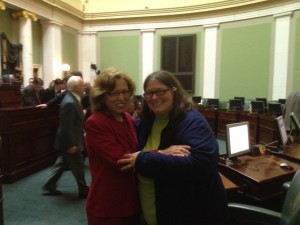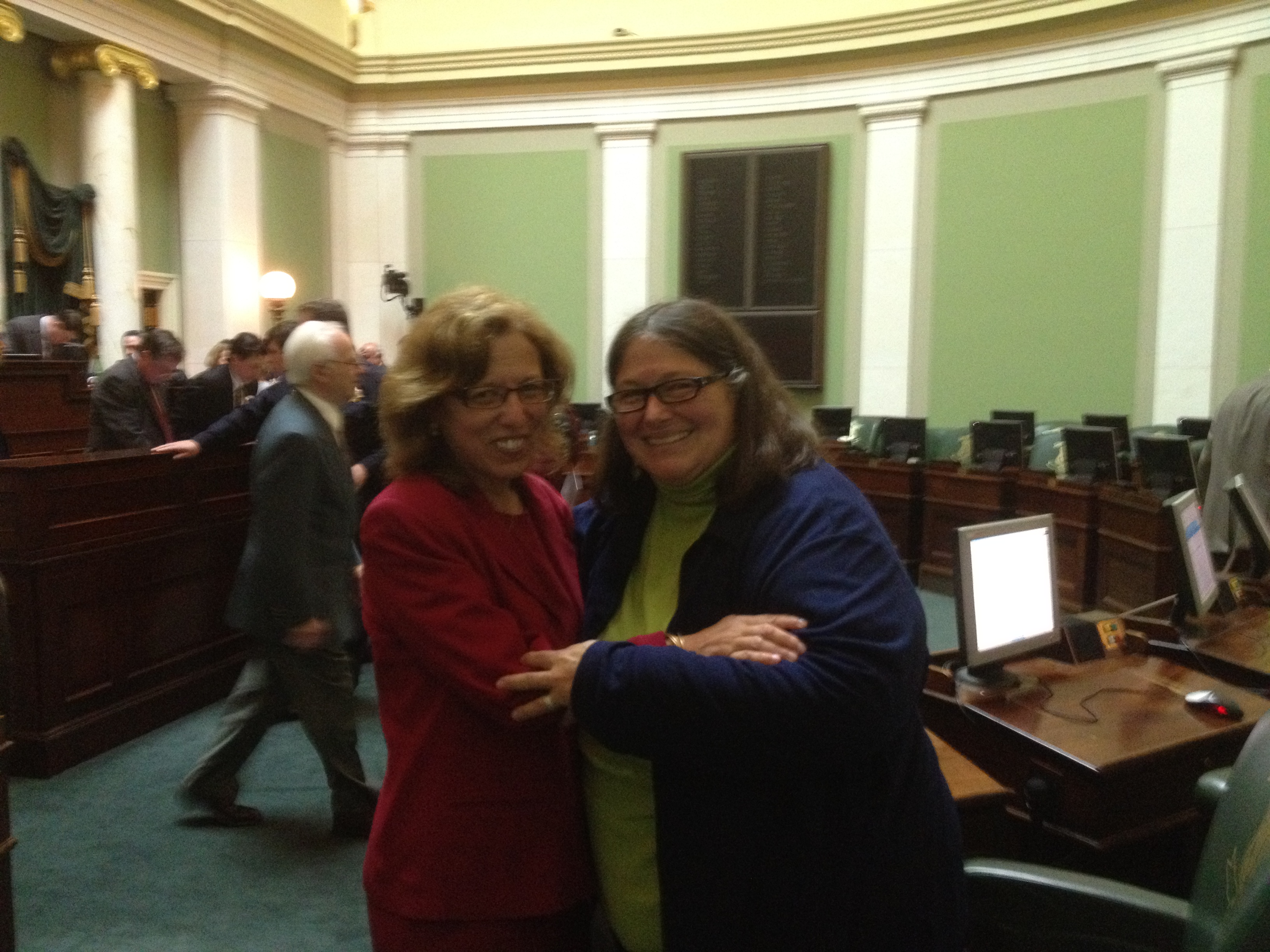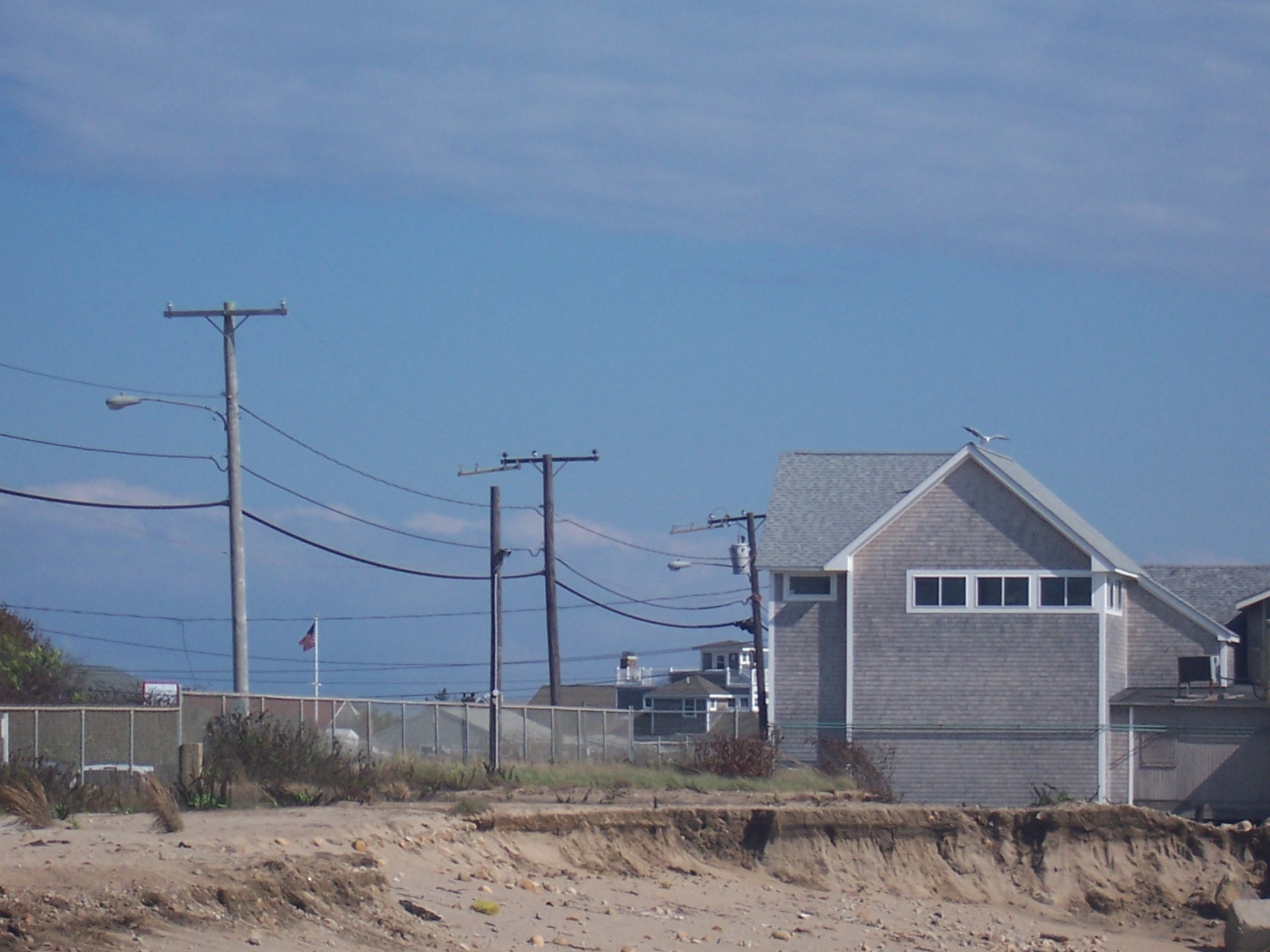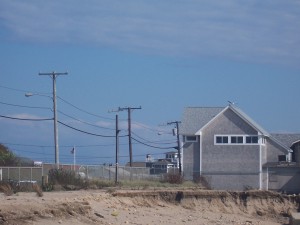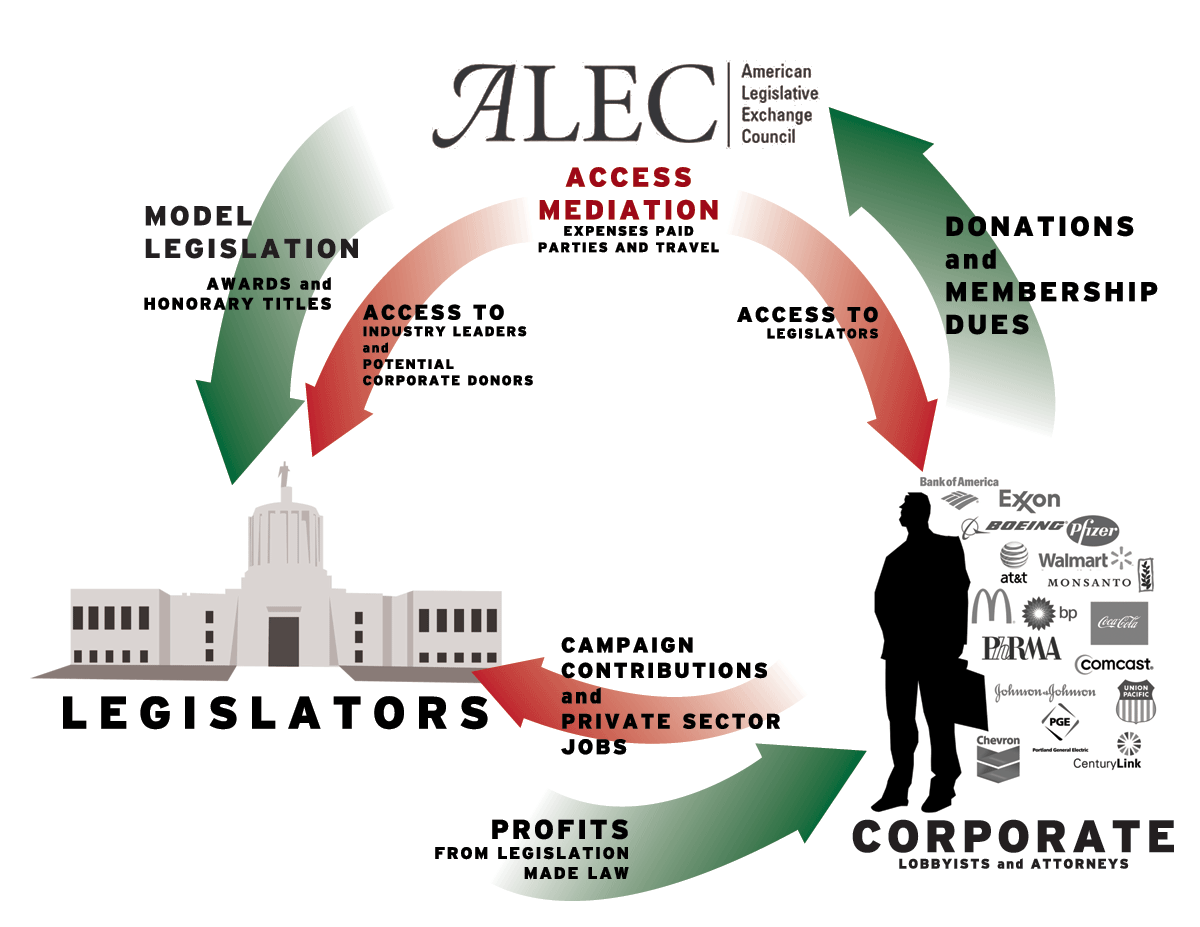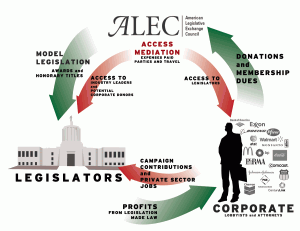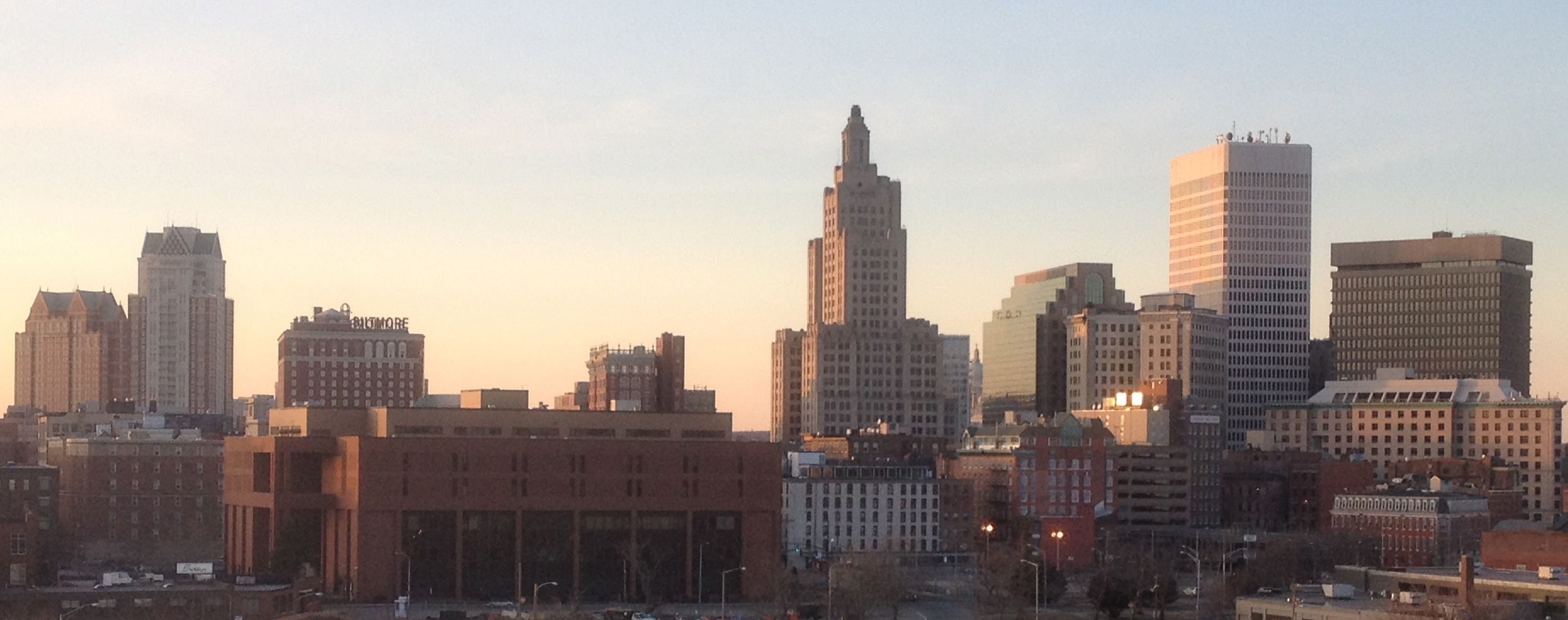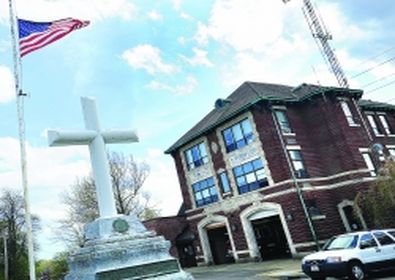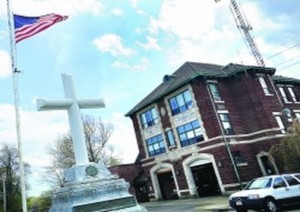
In 1921 a war weary nation was pulling itself together after the horrors and losses of the Great War, later and unfortunately to be known as World War I. Cities and towns across the nation began the process of mourning and memorializing their dead, and Woonsocket, Rhode Island was no exception. That year the small mill city dedicated ten “squares” to Woonsocket natives who had fallen in the war. The squares were set at intersections throughout the city, and dedicated during a visit from the supreme commander of the allied forces during the war, Ferdinand Foch, on tour in the United States after retirement.
Some of the squares dedicated seem to be newly minted, in that there were previously no official names for the locations, but others had names long established. Having now located and extensively photographed all ten of the squares on May 7, 2012, I can now attest to the fact that it is only the monument erected on Jolicoeur Square that has any kind of religious imagery. Worse, it is only Jolicoeur Place where one can find any evidence that any WWI soldiers were honored over ninety years ago for their service to this country. The other nine squares have been forgotten, and any trace of the men who were honored is gone, if it were ever there to begin with.
I will start from the south and work my north, in the order I came upon them.
The intersection of Providence St. and Smithfield Rd. became Riendeau Square in memory of Alderic Riendeau. Right on the border of Smithfield, right next to the Gaston A. Ayotte Jr. Baseball field is a little patch of land with a concrete marker that may have once honored Alderic Riendeau, but it has sadly been stripped of most of it’s metal. Since I did not even find this much evidence of previous honors at the other sites I visited, it’s also possible that this tiny monument had nothing to do with WWI or Riendeau.
Next up was the intersection of Knight St., Cottage St. and Logee St. which became Roberge Square in memory of Lionel Roberge. This well maintained micro-park is located in one of the better sections of Woonsocket, a very picturesque spot. There is no sign of anything to do with Lionel Roberge, but there is a lovely sign honoring firefighter Jeffrey C. Boisvert. There is also a clock and a couple of benches.
The intersection of Green St. and Bernon St. was named for Joseph R. Coutu. Here is a wide street with no sign of any park, monument, benches or markers. There is nothing here but the Cool Corner Creamery and the Church of the Acts, which is a pretty amazing looking church, what with it’s negative space Jesus sign and red, white and blue Christmas lights spelling out JESUSAVES with the USA in the middle lit for emphasis. Coutu Square is lacking one thing, however: any evidence that Joe Coutu was once honored here.
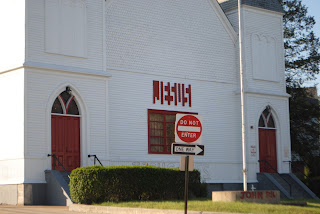
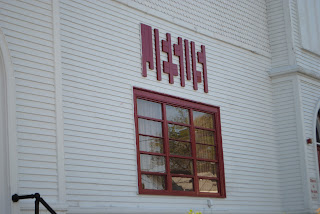
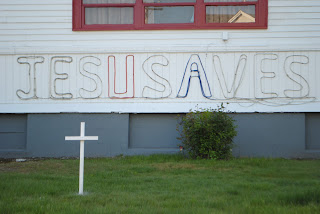
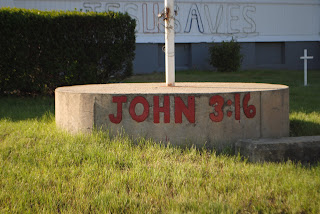
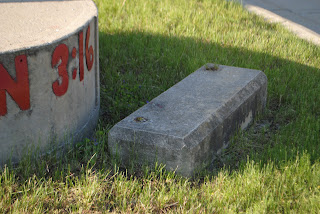
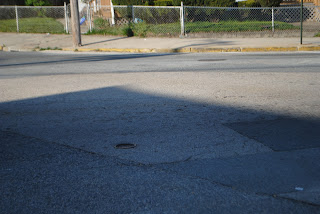
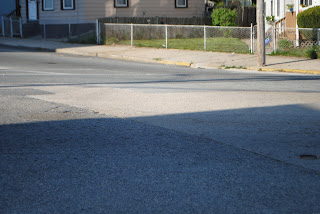
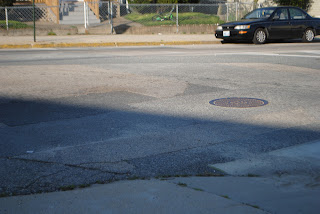

Normandin Square stands in stark contrast to Coutu Square. Named for Sgt. Oscar S. Normandin, the site is located at the intersection of Court St. and Front St, and was previously called Court Square. Actually, strike that. It is still called Court Square on Google Maps. The square may have been renamed, but the name didn’t stick (which, as we will see, is a common occurance.) Sgt. Oscar Normandin’s little patch of land was forgotten, and the name “Court Square” is still used today. The statue on the square is dedicated to veterans of the Philippine-American War (1899-1902). It’s a beautiful statue and the area is quite well maintained.
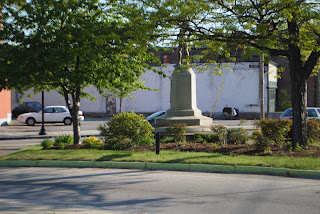
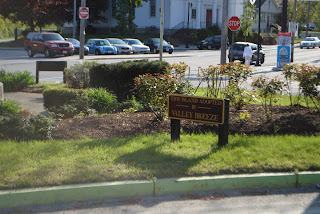
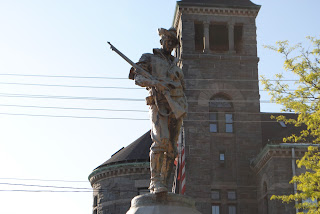
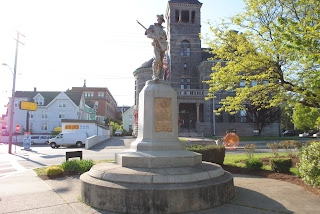
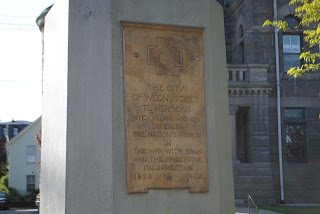



Flynn Square was another name that didn’t stick. Named for Lt. Harold F Flynn, (I think you got better square locations in the city depending on your military rank, but that’s just a theory) the space is today still known as Depot Square, because that’s where the Providence-Woonsocket train depot is located. The train depot today houses the Blackstone River Valley Authority, and operates as a sort of tourist center. I will say that Woonsocket is a bit rundown and beat up, but it is a singularly beautiful New England mill town, rich in history and beauty. Still, there’s no sign here of Lt. Flynn or his brave sacrifice.
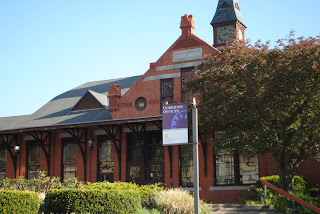
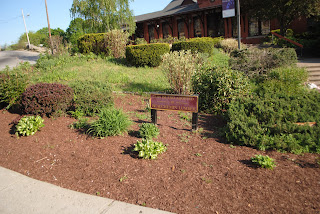
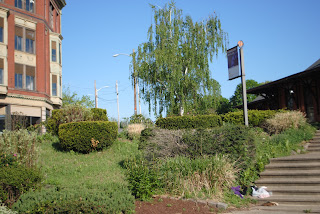
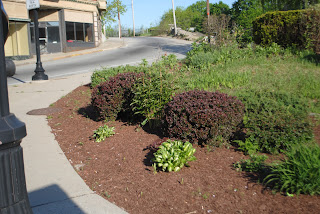
Across from the old train depot is a mini-park called Veterans Memorial Park maintained by the Woonsocket Lions Club. Since the mini-park technically abuts the lost location of Flynn Square I checked it out as well. A plaque talks of the park being ravaged by the flood of August 1955. I wonder if that’s the same flood that caused the roads around the Jolicoeur monument to be re-routed, leaving the cross in the center of a parking lot?
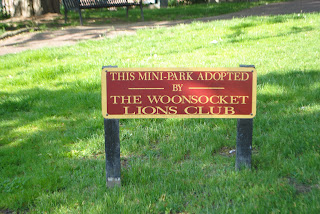
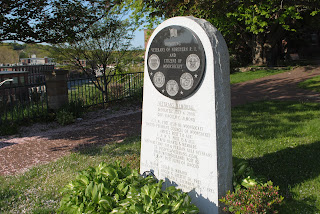
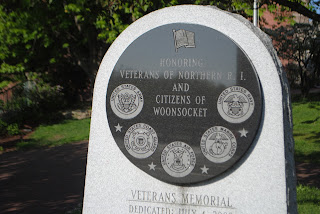
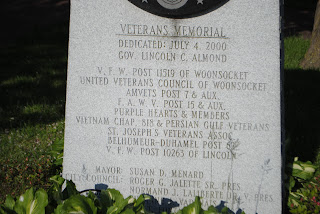
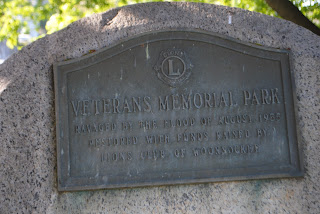
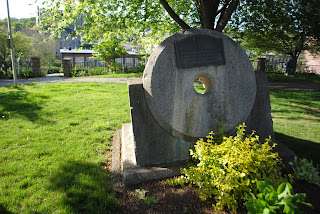
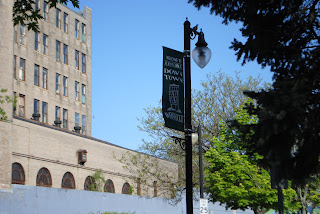
Market Square is the cultural and historical center of Woonsocket these days. here is located the Museum of Work and Culture, a terrific day trip with a fantastic gift shop. Also located here is Ye Olde English Fish and Chips, which has the best seafood chowder and fish and chips in Rhode Island, if not New England. But did you know that Market Square is not officially called Market Square? No, the name of this place is Young Square, named in the memory of WWI veteran Andrew F. Young. Only problem is, the name didn’t stick, and everyone calls it Market Square. If you look hard enough you might find a marker for WWI vet Narcisse Joyal Jr., but of Andrew Young I found no sign.
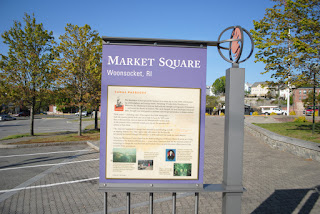
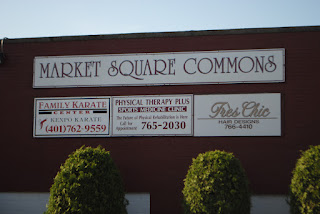
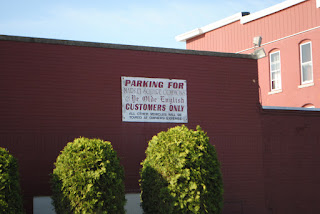
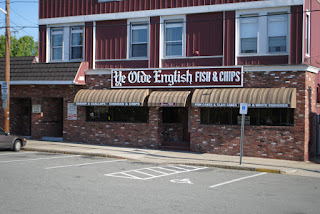
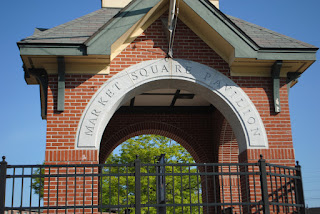
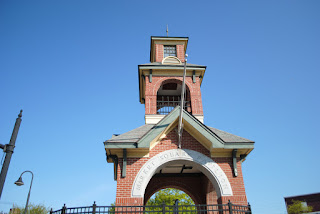
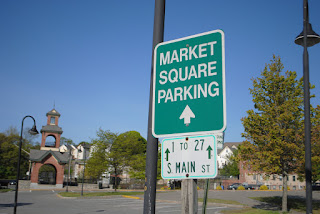
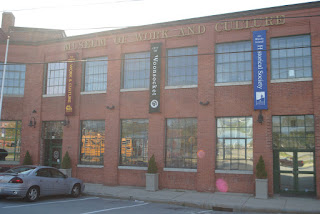

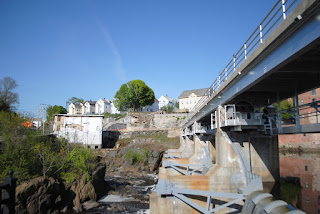
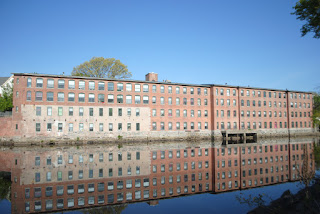
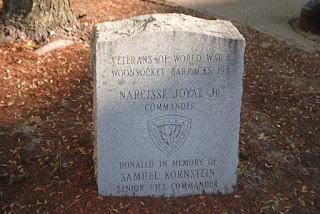
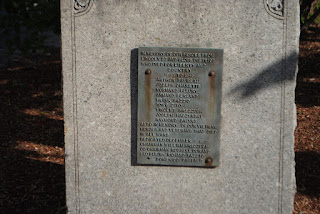
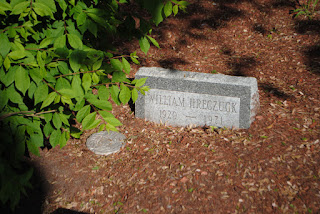

The intersection of Blackstone St. and Harris Ave. was once known as Randal Square, but since 1921 the name has officially been Curtis Square, named for Pvt. Arthur Curtis. There’s a monument here for General Casmir Pulaski, who gave his life (I think) fighting for American Independence in 1779. There are no other markers at the small park. I’m pretty sure that few if any people who pass by this spot each day have ever heard of Arthur Curtis.
Social Corner at the intersection of Cumberland, Social and Rathbun Streets shows no sign of having ever been once dedicated to the memory of Donatien Belhumeur. Perhaps for a very short time following its dedication in 1921 the intersection was occasionally referred to as Belhumeur Square, but when I asked a man who worked in a nearby business for the name of the place, he said “Social Corner.” He didn’t know and had never heard any other name for it.
Filici Square, named in memory of WWI veteran Giovanni Filici is located at the corner of Social St. and Diamond Hill Rd. There is nothing there to indicate that this intersection was ever once thought special enough to be named in honor of a fallen patriot. There is nothing there.
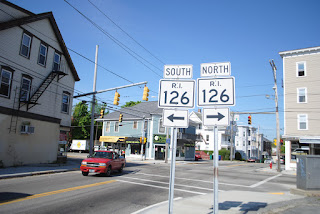
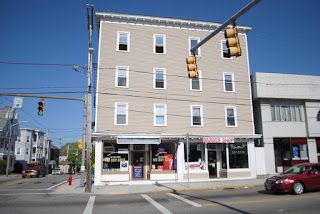
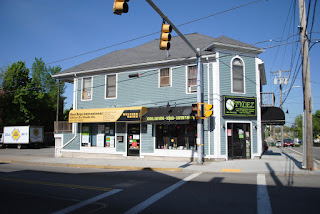
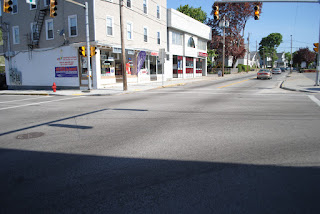
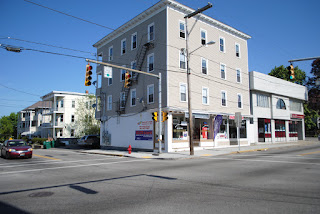
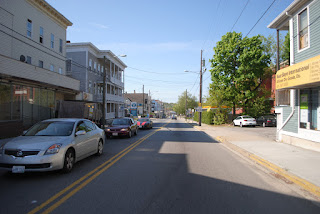
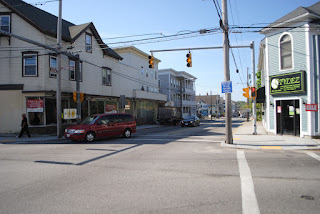
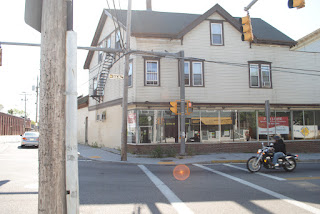
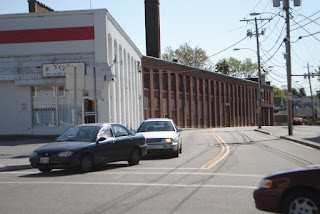
This photo essay could not be complete without paying a visit to Jolicoeur Square, even though it has by now been photographed extensively. My visit this morning was not greeted by retired veterans guarding it, as have been there in the past. The location is just a big parking lot, in the center of which rested the monument built for the Gagne brothers. We can now be sure that Jolicoeur was not being honored by the monument, he only gave his name to the patch of land the Gagne monument rests upon. Had the monument not been built there, it is entirely possible that Jolicoeur’s tiny patch of land would be as forgotten as the squares of Flynn, Young, Normandin, Curtis, Coutu, Belhumeur, Filici, Roberge and Riendeau.
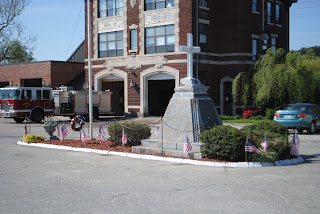
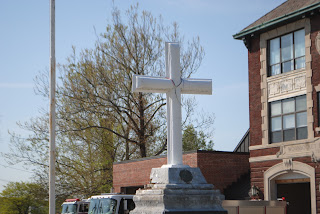
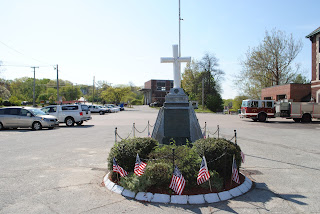
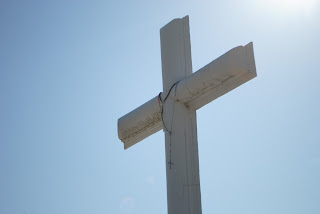
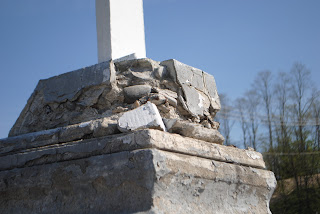
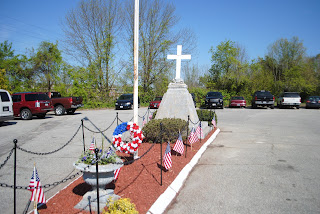
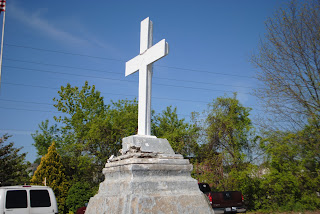
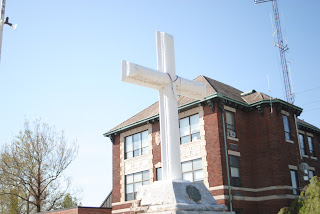
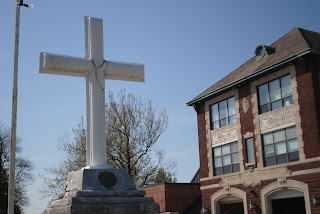
What else can be noticed about all the locations I visited? One thing stands out: The lack of any kind of religious imagery on any of the squares. The veterans are all honored with secular, not religious symbols and words. Outside the Jolicoeur location I did not see a single cross on publicly owned land. I did not read a single mention of God, or see any prayers. What I saw was imagery that expressed the heartfelt thanks of a citizenry wise enough to know that church and state should not be mixed.
Further proof? Here’s a Civil War Memorial located right in downtown Woonsocket. No prayers, no Gods, no crosses. Just a remembrance of fallen veterans that all Americans can appreciate.
Go back and look at the pictures from the Veterans Memorial Park. No religious imagery there, either.
It was only in 1952, when the Cold war was under way and the Godless Commies were stockpiling nukes that the United States started to blur the line between church and state. In Woonsocket, this took the form of placing a cross on top of the monument to the Gagne brothers. It wasn’t necessary to do so, as we’ve seen, there are plenty of excellent tributes to Woonsocket’s veterans scattered throughout the city, none of which sport a religious message.
Another thing this research shows is that there is nothing intrinsically special about Jolicoeur Square. It is only one of ten locations throughout Woonsocket, and the only reason anyone knows of it is because it was chosen as the location of the Gagne brothers memorial. There is no particular reason that the Gagne brothers memorial needs to be on the Jolicoeur Square. There is no real connection between the two families (as far as I know) aside from the shared French-Canadian heritage. It therefore follows that the Gagne Memorial can be moved without any insult to Jolicoeur’s family, or to the Gagnes.
The fact is that none of the places I visited are considered in any way to be special areas for fallen WWI soldiers. This is not my opinion, it’s the opinion of the generations of people who have ignored, renamed or paved over these squares. If we want to vest these locations with specialness once more, then we need to not single out the one location that happens to have an inappropriate cross on top, but include all the locations in some sort of larger effort. Hopefully this essay can be sen as the beginning of such an effort.
As far as Jolicoeur Square goes, the land (or some other piece of land) could and should be re-dedicated to William Jolicoeur, perhaps with a small plaque or sign. A similar plaque or sign could be installed throughout the city at the other nine sites as well, especially those sites that have been completely lost or forgotten in time. I don’t expect that anyone in Woonsocket is prepared to start calling Market Square “Young Square” in contradiction to years of familiarity, but a small sign remembering the valor of Andrew F. Young might be in order.
What this research shows is that a compromise is possible between those who want the cross to stay on the Gagne monument, and those who want it removed. The cross can be moved to private property with no insult to the Gagne or Jolicoeur families. The Jolicouer Square can be re-dedicated, along with nine other forgotten heroes, and church and state can continue to be protected from each other.
